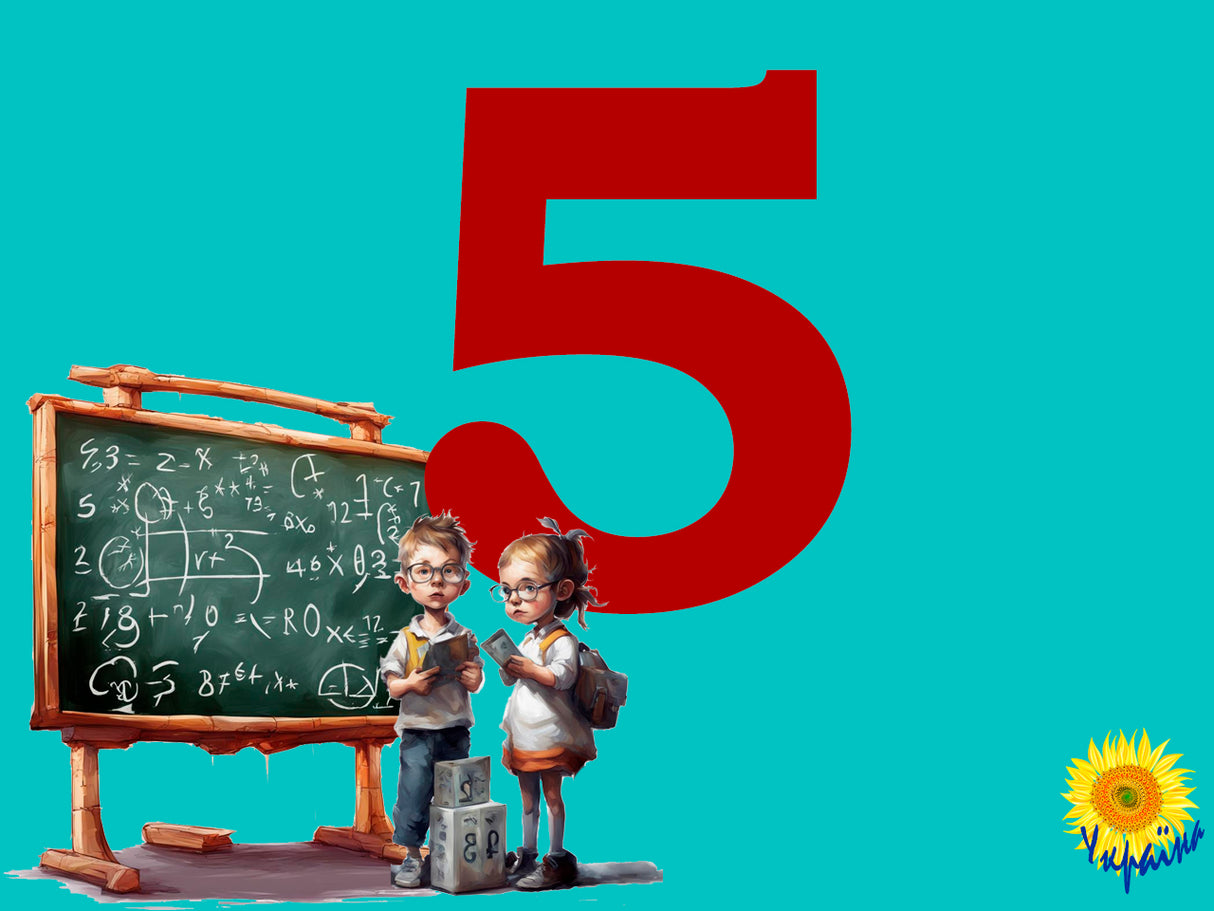Mathematics Grade 5. Fractional numbers and actions with them. Collection 1
 Intermediate
Intermediate
 Course
Course
 60 hours
60 hours
Mathematics Grade 5. Fractional numbers and actions with them. Collection 1 - Ukrainian is backordered and will ship as soon as it is back in stock.
What is Unibot?
What is Unibot?
Unibot is a platform for educational systems that combines an administration panel and a chatbot. It allows you to easily upload data, customize chatbots without programming, and manage courses. It supports multilingual bots, content management, and optimized resource utilization for efficiency. The platform makes educators' work easier by automating repetitive tasks. Different pricing plans are available, from basic to premium, which differ in the number of supported bots, languages, messages, and other features.
More information
Interactive Course: Mathematics. Grade 5. Fractional Numbers and Operations with them
An engaging and interactive course designed for children, featuring interactive tests and exercises.
This interactive course is specifically structured to help students deepen their understanding of fractional numbers and perform arithmetic operations with them effectively. Through engaging activities, quizzes, and interactive tests, students will master essential skills such as comparing, rounding, adding, subtracting, multiplying, and dividing fractional numbers. The course also covers important concepts like mixed numbers, decimal fractions, powers of fractions, and solving word problems in real-world contexts, such as budgeting, safety, and healthcare.
Key Concepts Covered in the Course
• Ordinary fractions
• A fraction as a ratio of two natural numbers
• Comparison of fractions with the same denominators
• Proper and improper fractions. Mixed numbers
• Addition and subtraction of fractions with the same denominators
• Decimal fractions. Writing decimal fractions
• Comparison of decimal fractions. Rounding decimal fractions
• Arithmetic operations with decimal fractions
• Arithmetic mean. Average value of a quantity
Course Modules
Module 1: Fractional Numbers and Operations with them
• Ordinary Fractions
• A Fraction as a Ratio of Two Natural Numbers
• Comparison of Fractions with the Same Denominators
• Proper and Improper Fractions
• Mixed Numbers
• Addition and Subtraction of Fractions with the Same Denominators
• Addition and Subtraction of Mixed Numbers
• Decimal Fractions. Writing Decimal Fractions
• Comparison of Decimal Fractions
• Rounding Decimal Fractions
• Addition and Subtraction of Decimal Fractions
• Multiplication of Decimal Fractions
• Properties of Multiplication. Special Cases of Multiplication
• Division of Decimal Fractions by Natural Numbers
• Division by Decimal Fractions
• Arithmetic Mean. Average Value of a Quantity
• Exercises on All Operations with Natural Numbers and Decimal Fractions
• For the Most Curious
Expected Learning Outcomes
By the end of this course, students will be able to:
• Provide examples of ordinary and decimal fractions
• Differentiate between proper and improper fractions
• Explain the concept of the numerator and denominator of a fraction, as well as mixed numbers
• Identify place values of the whole and fractional parts of a decimal number
• Read and write ordinary and decimal fractions, as well as mixed numbers
• Define proper and improper fractions, as well as the arithmetic mean
• Understand and apply the rules for rounding decimal fractions and calculating the arithmetic mean
• Solve exercises that involve comparing, adding, and subtracting ordinary fractions with the same denominators; comparing, rounding, adding, multiplying, and dividing decimal fractions
• Convert mixed numbers to improper fractions and vice versa
• Solve word problems involving safety, household budgeting, large purchases, healthcare, and financial matters
• Use rational calculation methods effectively
• Make predictions based on fractional calculations
This course not only builds a strong foundation in working with fractional and decimal numbers but also equips students with problem-solving skills and critical thinking. Through interactive learning tools such as quizzes, exercises, and engaging tests, students can practice their skills and gain a deeper understanding of the mathematical concepts necessary for daily life and future academic success.
-
Genre
-
Target audience
-
Language version
-
Subject area
-
Recommended age group
-
Course time
-
Book author
-
Author Collection



